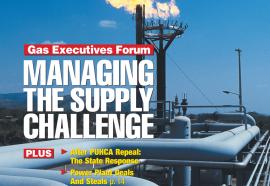Kicked Off and On Schedule
Cal-ISO files a new market design, but has it traded efficiency for software?
Eyeing a launch date of November 2007, Cal-ISO at last has come forward with plans for revamping its widely disparaged wholesale market design. The formal proposal, known as the MRTU (Market Redesign and Technology Upgrade), was filed this past February at FERC.









